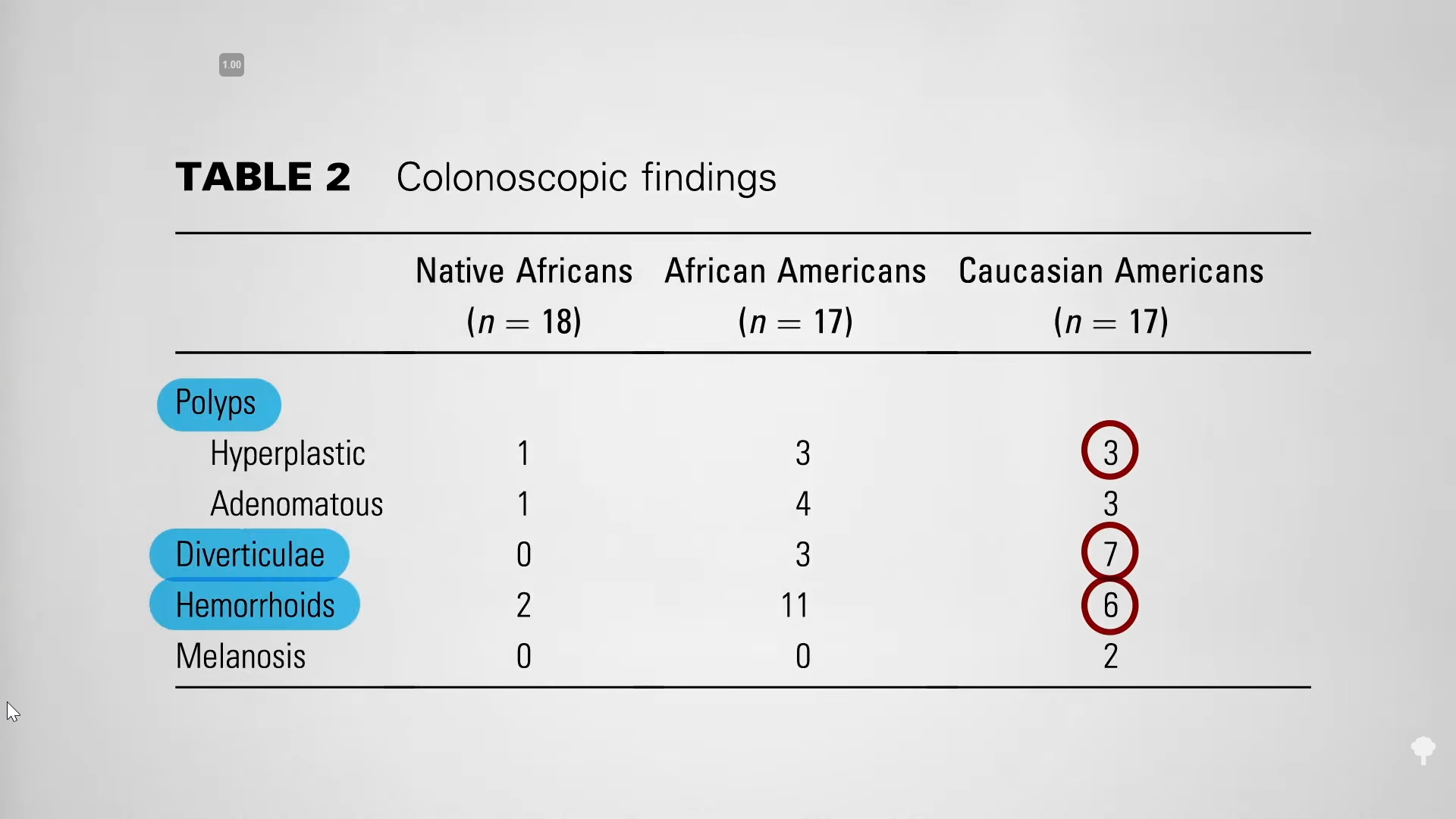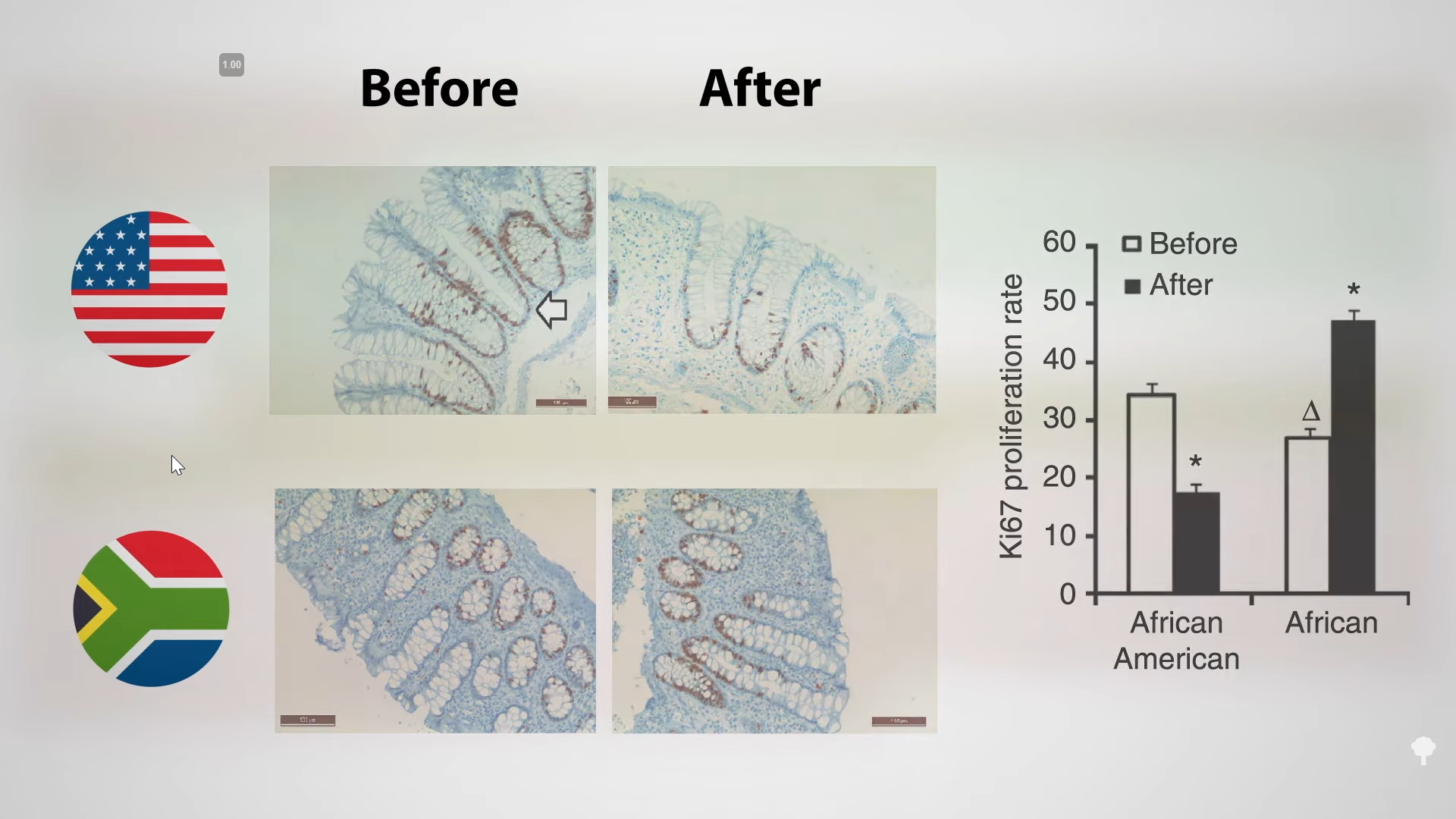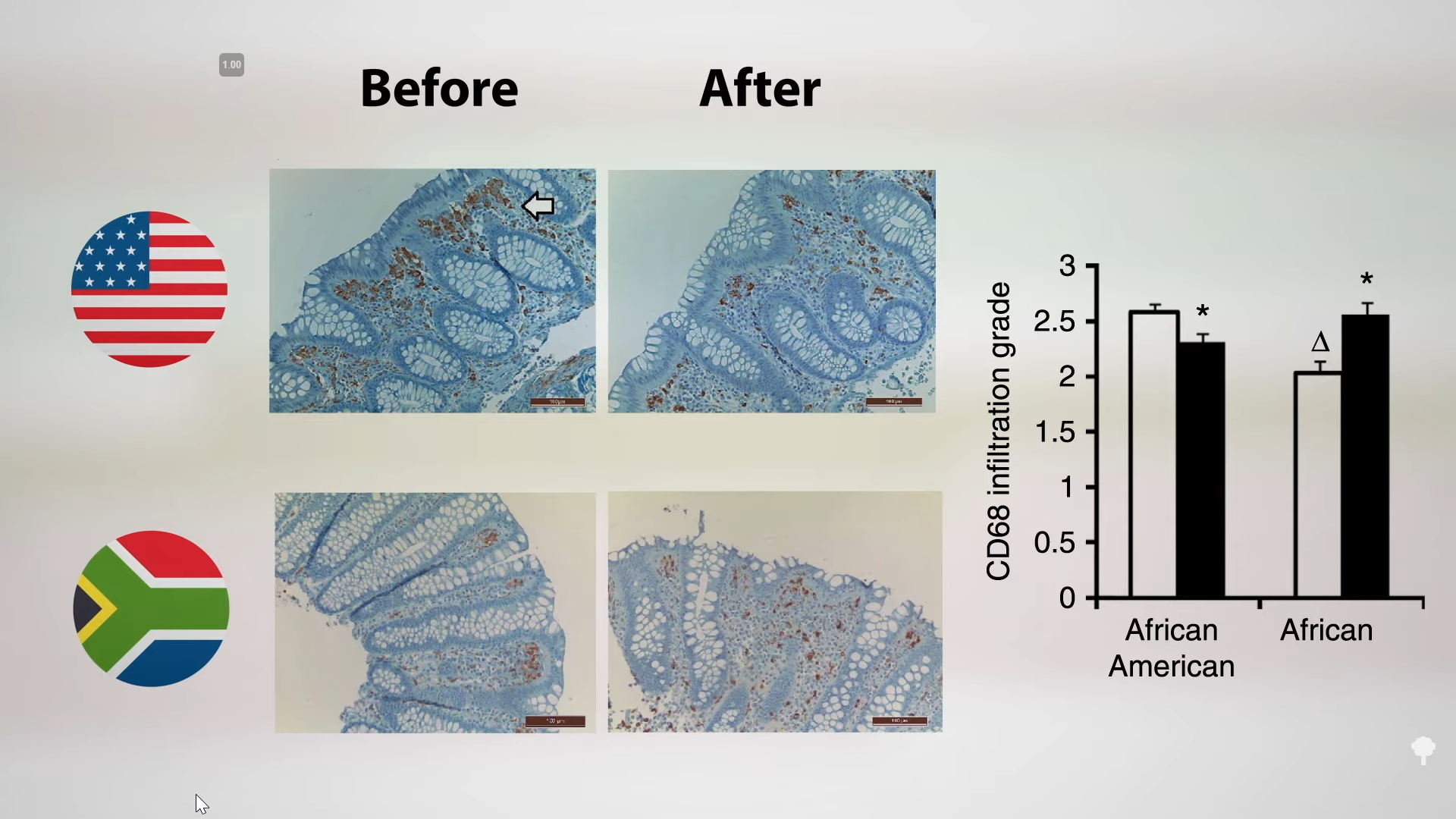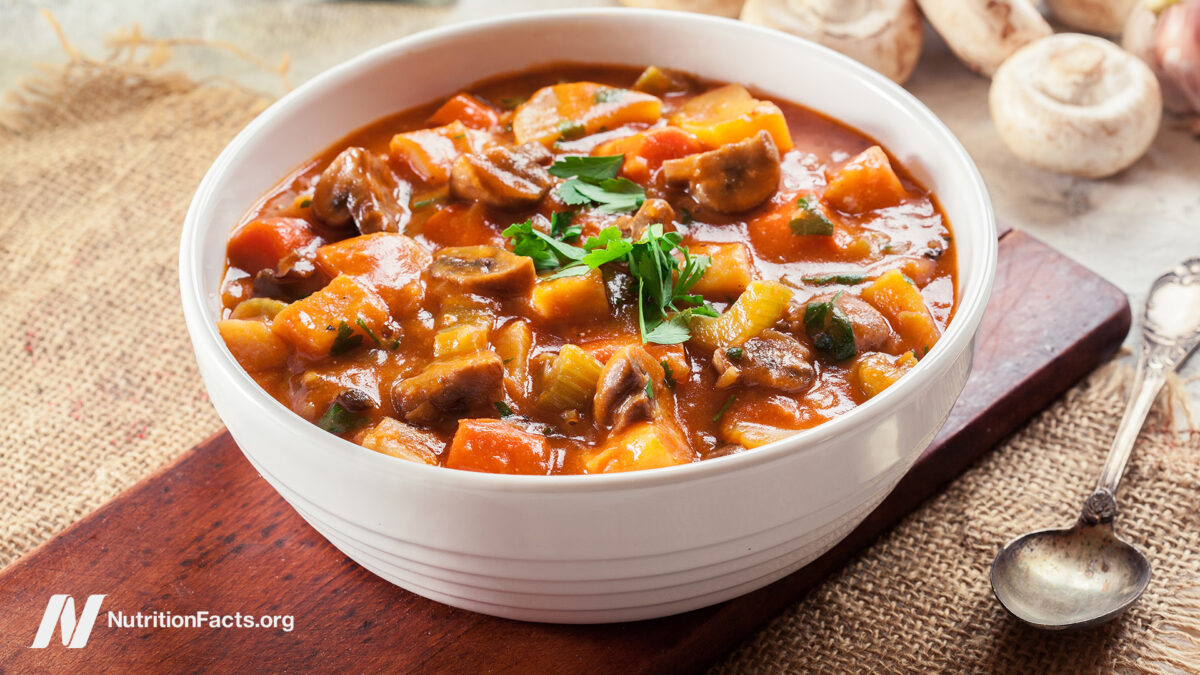What would happen within just two weeks after swapping the diets of Americans with those of healthier eaters?
Colon cancer is our second leading cancer killer, but some places, like rural Africa, have more than ten times lower rates than we do in the United States. How do we know it isn’t genetic? “Migrant studies, such as those in Japanese Hawaiians, have demonstrated that it only takes one generation for the immigrant population to assume the colon cancer incidence of the host western population.” The change in diet is considered “most probably responsible for this,” but all sorts of changes occur when you move from one culture to another. “For example, cigarettes, chemicals, infections, and antibiotics might be equally responsible for the change in colon cancer risk.” You don’t know if it’s the diet until you put it to the test.
It’s rare that I do a whole video on a single study, but I think you’ll agree the one that I cover in The Best Diet for Colon Cancer Prevention is worth it. An international group of researchers was trying to figure out why colon cancer rates were an order of magnitude higher in African Americans and Caucasians in the United States than in rural South Africans. As you can see below and at 1:09 in my video, if you look at American colons, they’re a mess with polyps and diverticulosis, not to mention hemorrhoids, whereas the African colons were “remarkably pristine.” And more importantly, the Africans had sevenfold lower colonic epithelial proliferation rates, a characteristic of precancerous conditions. The researchers measured everything the study participants were eating and concluded that the higher colorectal cancer risk and proliferation rates in African Americans were most closely “associated with higher dietary intakes of animal products and higher colonic populations of potentially toxic hydrogen [acid] and secondary bile-salt-producing bacteria.”

When put to the test, higher rates of colon cancer were indeed found to be associated with higher intake of animal protein and animal fat, lower fiber consumption, more of those bad bile acids, less of those good short-chain fatty acids like butyrate, and higher mucosal proliferation. But how do we know the diet is what’s mucking things up? We don’t—until an interventional study is performed.
How about we just swap their diets? Feed the Americans a high-fiber African-style diet, and give the rural Africans the standard American diet. On day one of the experiment, the rural Africans were given sausage and white flour pancakes for breakfast, a burger and fries for lunch, and some meatloaf and white rice for supper, whereas the African Americans ate fruits, vegetables, corn, and beans. To help with compliance, the researchers included some more familiar foods like veggie dogs. Note, though, that it was not a vegan diet, just generally plant-based. You can see the day one menu below and at 2:31 in my video.

Also, note that the food exchanges weren’t for years. They only swapped for two weeks. Could changes be seen that fast? Indeed, the dietary changes “resulted in remarkable reciprocal changes” in the lining of the participants’ colons in terms of cancer risk and their microbiome. Switching to a more plant-based diet boosted their fiber fermentation and suppressed their carcinogenic bile acid synthesis. The researchers took biopsies and looked under a microscope at the colon lining of African Americans. Before the diet swap, their colon lining was in overdrive with rapidly dividing cells, a sign of premalignancy that is a risk factor for cancer. But, after just two weeks of eating a healthier diet, their colons calmed right down. You can see some before and after pictures below and at 3:07 in my video. The brown dots in the before photo for the African Americans represent dividing cells. In the after photo, they’re nearly gone. In contrast, the rural Africans started out with some proliferation, but it got worse on the American diet.

Below and at 3:44 in my video, you can also see a different marker measuring inflammation. Each of the brown dots represents an inflammatory cell. In the African Americans, there was rife inflammation on their typical diet that calmed way down after just two weeks on a healthier one, and the opposite happened for the rural Africans who switched to the standard American diet.

We know that when our friendly flora ferment fiber, they produce beneficial compounds like butyrate, which is anti-inflammatory and anti-cancer. “Impressively, ‘Africanization’ of the diet” more than doubled butyrate production, increasing total quantities, “whereas ‘westernization’ reduced quantities by half.” And in terms of toxic metabolites, there was a significant drop in the healthier diet, whereas the “meatloafy” standard American diet increased the levels of these carcinogens by 400 percent within just two weeks. So, the bottom line is that just by changing the food you eat, you can remarkably change your risk. In fact, that’s how the lead investigator put it. “O’Keefe’s advice is simple, ‘change your diet, change your cancer risk!’” It may never be too late to start eating healthier.
Based on these kinds of data, “adopting a whole-food vegan or near-vegan diet rich in fruits and vegetables, exercising regularly, and avoiding tobacco, could have a stunningly positive impact on the cancer risks not only of black Americans but of all peoples.” The researchers concluded: “While it would be unrealistic to expect rapid and profound lifestyle changes in the general population, it is gratifying to have sound, effective advice to offer to those who are willing to take the steps needed to optimize their healthful longevity.”
This is the follow-up to Best Foods for Colon Cancer Prevention. As I mentioned, it’s rare I do a whole video on a single study, but I hope you’ll agree this one is worth it. For more on keeping our colonic colleagues thriving, check out the related videos below.
